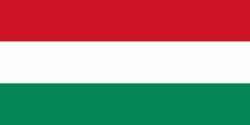Mezőkövesd (Mezőkövesdi Járás)
Mezőkövesd is a town in Borsod-Abaúj-Zemplén county, Northern Hungary. It lies 50 km from Miskolc and 15 km from Eger.
The area has been inhabited since the Great Migration. It is likely that the first Hungarian settlement was formed here shortly after the conquest of Hungary, but in 1275 in a church document it was mentioned as a deserted place. It is likely that the village was destroyed during the Mongol invasion of Hungary.
In the 13th century, Mezőkövesd was the southernmost town belonging to the Diósgyőr estate. In 1464 the town got a seal and privileges from King Matthias. The name of the Matyó people, who inhabited the town and the area, is likely to have come from his name.
In 1544 the town was occupied by the Turks. In 1552 – in the year when the Castle of Eger was under siege by the Turks – Mezőkövesd was completely destroyed. Though it was rebuilt, after the battle in the nearby village of Mezőkeresztes, it was destroyed again in 1596 and wasn't rebuilt for almost 100 years.
Until 1784 Mezőkövesd was royal estate. In that year the town freed itself from its feudal obligations. The following years brought prosperity. In 1860 the railway line reached the town.
In 1938 a thermal spring was found in the estate of Lajos Zsóry. A thermal bath was built and now it is one of the main tourist attractions of the town. In 1941 the town had 21,000 residents, the highest population ever recorded.
Before World War II, there was a Jewish community in Mezőkövesd. At its height, there were 862 Jews in the community most of them were murdered by the Nazis in the Holocaust.
The area has been inhabited since the Great Migration. It is likely that the first Hungarian settlement was formed here shortly after the conquest of Hungary, but in 1275 in a church document it was mentioned as a deserted place. It is likely that the village was destroyed during the Mongol invasion of Hungary.
In the 13th century, Mezőkövesd was the southernmost town belonging to the Diósgyőr estate. In 1464 the town got a seal and privileges from King Matthias. The name of the Matyó people, who inhabited the town and the area, is likely to have come from his name.
In 1544 the town was occupied by the Turks. In 1552 – in the year when the Castle of Eger was under siege by the Turks – Mezőkövesd was completely destroyed. Though it was rebuilt, after the battle in the nearby village of Mezőkeresztes, it was destroyed again in 1596 and wasn't rebuilt for almost 100 years.
Until 1784 Mezőkövesd was royal estate. In that year the town freed itself from its feudal obligations. The following years brought prosperity. In 1860 the railway line reached the town.
In 1938 a thermal spring was found in the estate of Lajos Zsóry. A thermal bath was built and now it is one of the main tourist attractions of the town. In 1941 the town had 21,000 residents, the highest population ever recorded.
Before World War II, there was a Jewish community in Mezőkövesd. At its height, there were 862 Jews in the community most of them were murdered by the Nazis in the Holocaust.
Map - Mezőkövesd (Mezőkövesdi Járás)
Map
Country - Hungary
 |
 |
| Flag of Hungary | |
The territory of present-day Hungary has for centuries been a crossroads for various peoples, including Celts, Romans, Germanic tribes, Huns, West Slavs and the Avars. The foundation of the Hungarian state was established in the late 9th century AD with the conquest of the Carpathian Basin by Hungarian grand prince Árpád. His great-grandson Stephen I ascended the throne in 1000, converting his realm to a Christian kingdom. By the 12th century, Hungary became a regional power, reaching its cultural and political height in the 15th century. Following the Battle of Mohács in 1526, it was partially occupied by the Ottoman Empire (1541–1699). Hungary came under Habsburg rule at the turn of the 18th century, later joining with the Austrian Empire to form Austria-Hungary, a major power into the early 20th century.
Currency / Language
| ISO | Currency | Symbol | Significant figures |
|---|---|---|---|
| HUF | Hungarian forint | Ft | 2 |
| ISO | Language |
|---|---|
| HU | Hungarian language |















